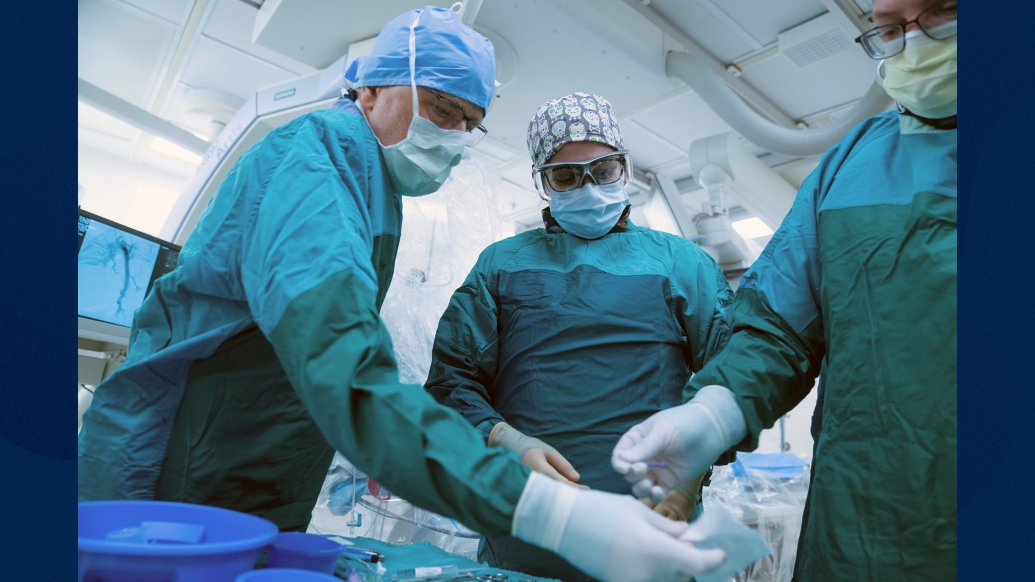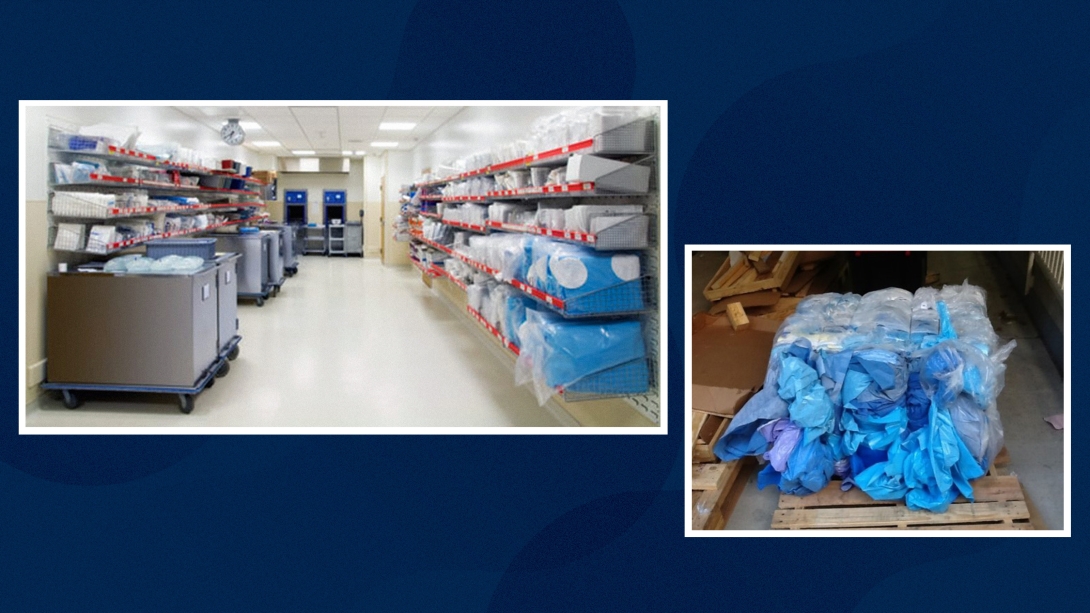A goal to reduce waste and take a step toward carbon neutrality goals
5:00 AM
Author |

A project over a decade in the making is beginning to be implemented, furthering University of Michigan Health’s effort to reduce carbon emissions and making a substantial step forward in achieving the organization’s carbon neutrality goals.
Globally, health care plastics packaging was 14.5 billion pounds in 2020 with projections up to nearly 19 billion pounds by 2025. Around 25% of all waste generated at hospitals is plastic. Moreover, 35% of all waste generated at hospitals occurs in the operating room setting, ending at a landfill due to lack of viable recycling options.
To address this sizable issue, the medical plastics recycling initiative was created.
Tackling the problem
Its roots trace back to 2011, but in the past two years, Michigan Medicine has advanced recycling potentials through a collaboration with DuPont. These efforts are made possible through U-M Health’s Environmental Sustainability & Carbon Neutrality program.

In October 2021, a six-month pilot with DuPont began at C.S. Mott Children’s and Von Voigtlander Women’s Hospitals.
Over 2.5 tons of plastic material was collected and recycled. The success of the pilot was attributed to meeting the program’s goals of collecting “blue wrap” used to package surgical items, and other non-contaminated medical plastics to increase the recycle rate and divert plastics from landfills.
“This project is one of many important initiatives that we have underway at U-M Health,” said Tony Denton, senior vice president and chief environmental, social and governance officer at Michigan Medicine.
“We have been working incredibly hard to identify how operating room products are used and disposed of in an environmentally sustainable way. I am delighted to have a partner like DuPont who is on the cutting edge and engaged in innovative practices which will allow us to reduce waste, recycle and repurpose materials for the benefit of our planet.”
Fast forward
U-M Health plans to roll out its first large-scale medical plastics recycling initiative within the operating room suites of Mott and Von Voigtlander Hospitals. Continued rollout of the program will take place at the Adult Hospitals as well. Future phases will aim for expansion of the recycling initiative across the ambulatory surgical centers and medical procedure locations.
“We are excited to see what the results will be from this project,” Denton added. “We know it’s going to have a large impact on reducing greenhouse gas emissions, and we look forward to sharing the environmental impact results.”
One of the key reasons the program has been successful is the alliance with DuPont. The company has a demonstrated commitment to reduce the carbon footprint and create environmentally safe solutions with other industries that make a difference for individuals and communities.

Explore a variety of health care news & stories by visiting the Health Lab home page for more articles.

Department of Communication at Michigan Medicine

Senior Vice President
Chief Environmental, Social and Governance Officer, U-M Health
Want top health & research news weekly? Sign up for Health Lab’s newsletters today!





